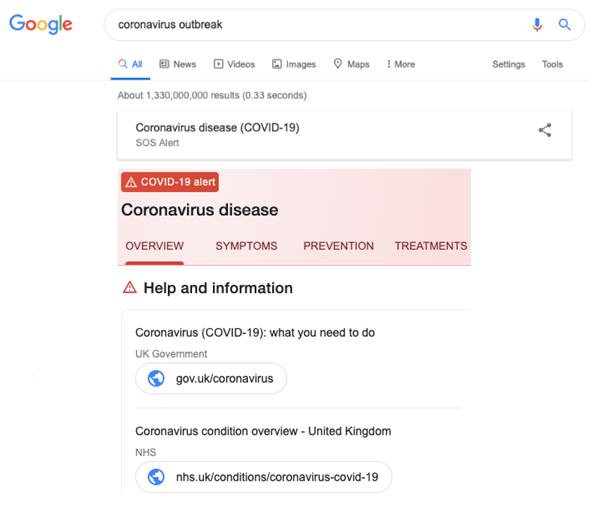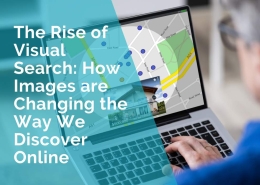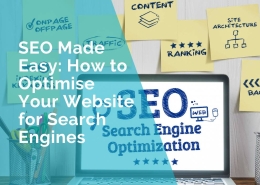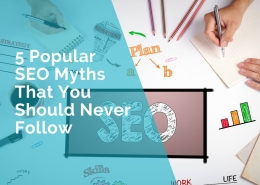Impact of COVID-19 on SEO and Organic Traffic
COVID-19 or coronavirus is an infectious disease that has caused a pandemic around the world. It has led to a global upheaval in 2020. The main reason behind the upheaval is that businesses, as well as economies, are shifting their focus to support the health of its citizens and slow down the infection rate.
Governments across different countries have imposed strict measures to restrict or minimize the foot traffic and movement of vehicles. Thus, business owners are being forced to look for creative methods that can provide services virtually to the customers. Many businesses are also suffering due to the COVID-19 outbreak and have come to a complete halt.
During this period, COVID-19 has also led to notable changes in the online search behavior of the customers and is impacting the type of content being displayed by search engines in the results page. In this guide, we would be discussing in detail how the pandemic is impacting organic traffic and how different businesses can deal with it.
Impact of COVID-19 on Organic Traffic
For the last few months, the whole SEO community has been talking about the latest COVID-19 outbreak and the impact of it on organic traffic and performance.
It has been observed there has been a big dip in the organic performance of websites across different verticals. At the same time, there are also many verticals where a notable rise in organic traffic can be seen. There are several new Search Engines Results Page (SERP) features that one can see emerging on different search engines such as Google.
With the rising instability and uncertainty in the economy due to the COVID-19 outbreak, there have been diverse effects on different businesses and industries. According to Nick LeRoy, an SEO Sydney Consultant, the most crucial and significant changes in the organic traffic as well as revenues were seen from 12th to 16th March 2020. He arrived at this conclusion after scrutinizing data and information from 10 anonymous websites across different verticals. He also found out the following points:
- The micro-niche eCommerce websites, i.e. those who catered to just a few products or services in a particular niche, saw a 25% drop in their organic performance. These websites also had a 35% drop in their organic revenue during this period.
- The online food shops and food websites saw a 56% rise in their organic performance. Such websites also saw a huge 188% rise in their organic revenue.
Coronavirus (COVID-19) SERP Features

One of the interesting developments of the coronavirus pandemic has been that the result page of Google has started triggering many new panels related to ‘coronavirus’. These panels provide users with data and information related to the disease. The content for the panel is generally taken from the website of the World Health Organization (WHO), which is the Centre for Disease Control, and many other local government bodies. Google also displays an ‘SOS Alert’ panel to indicate a state of emergency across the globe. This is one of the most effective ways to address the Coronavirus emergency online and create a sense of urgency among the users.
Another interesting SERP feature displayed by Google when a user searches for something related to ‘coronavirus’ is the safety tips that need to be followed during this crisis.
These tips showcase a video that instructs the searchers on how to wash hands properly along with other tips pulled from the WHO website.
Additionally, a user can also look at an ‘Affected Area’ panel, which shows the areas that have been affected by this pandemic on a world map. One can easily see on this map how the pandemic is spreading across the globe and its density in different regions of the world.
In the last part, before other organic results related to the search are displayed, Google also displays a ‘Symptoms’ panel where one can easily check out the common symptoms of COVID-19. This list of symptoms is also taken from the WHO website.
How Will COVID-19 Affect Trends Long-Term?
COVID-19 is being termed as one of the biggest trends in Google’s search history. People are not only searching for data and information related to coronavirus or COVID-19, but they also look at the information related to the stock market, economy as well as national leaders such as Narendra Modi and Donald Trump.
While one can find several continuous topical searches as well, however, a greater number of searches are more about or somewhat related to the coronavirus pandemic. Long-tail keywords have also started taking precedence. Some examples include:
- Is any shop open?
- Best movies to watch while in quarantine
- Are there any test centers for coronavirus in New York?
- Pandemic vs epidemic
Such searches can put the marketers under a lot of pressure as one needs to be careful and thoughtful while finding the correct target keyword and creating a proper and effective search strategy.
It is also possible that search queries related to coronavirus would continue for a long time along with combination searches such as ‘COVID-19 + future of banking’ and ‘coronavirus + schools’.
How the Pandemic has affected Organic Performance across Different Industries?
Different industries have been impacted differently due to COVID-19 pandemic. According to research by SimilarWeb, the worst affected industry due to the coronavirus outbreak has been the travel and tourism sector. In this sector, there has been a 34.02% decrease in traffic for websites that cater to air travel; a big 38.83% decrease has been observed in the case of hotel and accommodation websites and a 32.52% dip in traffic can be seen when it comes to car rental sites.
On a positive note, when it comes to observing growth in traffic, it has been observed that websites related to the delivery of food and groceries have seen a 7.8% rise in traffic while the movie websites have seen a 9.07% growth in their organic traffic.
Further, according to Education News, organic traffic on e-learning websites has also seen positive growth, with the website of Open University seeing an increase of up to 50% in their daily online sessions.
After combining different reports, we would also be talking about industry-specific performance. According to a report, it has also been seen that remote software websites have been one of the major winners during this pandemic.
According to the detailed G2 report on the influence of the pandemic on software usage, the number of downloads through its marketplace denote that there has been a significant rise in remote work, entertainment as well as learning. There has also been a 565% rise in the number of downloads when it comes to audio-conferencing software and another 52% growth in the case of virtual reality platforms.
How Should Businesses and SEOs Respond?
As the number of people working from home has increased suddenly, daily commute to work is no longer a necessity.
Businesses and SEOs also have more time now to formulate and execute their digital marketing strategies. Whether it is creating content for a sanitizer brand or an SEO marketing plan for a global media agency, digital marketing strategies can be easily planned and well-tuned.
According to Sydney SEO services expert Alan Muther, during this pandemic, businesses and websites need to stay ahead of the curve and apply different ideas and techniques to keep the website updated as well as optimized.
Since the level of competition after this pandemic is expected to rise, businesses should be prepared with their digital marketing strategies to rank their websites higher than the competitors.
There are several things that the businesses and SEOs can do to use the period of coronavirus outbreak to their advantage. Some of the ideas and tips are as follows:
- Review the Business Accounts: This includes keeping a check on a drop in traffic as well as impressions using an analytics tool. It can be done every second day to deduce inference from them. Since all campaigns are not the same, you would be able to take guidance from the data that you get.
- Plan Webinars: This is one of the most effective strategies in B2B marketing, and can be especially useful during the COVID-19 outbreak. It is a great way to remain connected with your audience while keeping them engaged. Webinars can also help you in increasing your followers and help you in increasing the number of future customers.
- Revisit the balance between offline and online channels: Having offline channels might have always worked for you, however, it is now a good time to invest and work on online channels, like Facebook Live and YouTube display ads.
- Record and Display Videos: Videos serve as one of the best SEO fodders. They are great for targeting long-term keywords and triggering featured snippets. Relevant videos can also appear on YouTube, enhancing your reach. You can even share videos on your social media accounts and keep your customers and employees engaged.
- Increase Content Vetting: Since this is a medical emergency, you should verify all sorts of data and information to avoid incorrect or fake data. Some tips to ensure this is as follows:
- Follow the health guidelines of your country
- Always refer to international websites and journals such as WHO and CDC instead of the national or local news websites
Rounding Up
There are a lot of things at stake for businesses as well as SEOs in these challenging times. However, observing the trends and taking preventive actions for the same would help you in handling the situation in the long run. It is best to check the existing performance of your business, make corrective decisions and then utilize these insights to grow further.
***
Author Bio: Andrew Raso is the CEO and one of the founding members of OMG SEO Sydney. He has a long illustrious career in the SEO and SEM industry and has written for many prestigious websites















